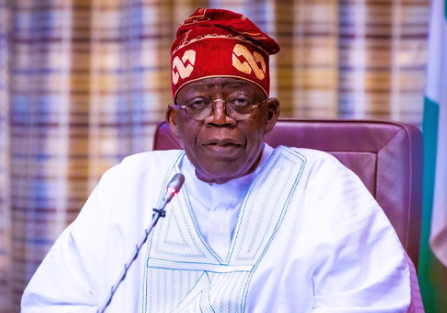President Bola Ahmed Tinubu on Monday blamed the worsening insecurity in the country on the poor state of governance in the local government areas across the country.
The President, who spoke in Abuja at a one-day national discourse on Nigeria’s security challenges and good governance at the local government levels, noted that democracy would count if people at the grassroots were not denied the dividends of good governance.
Represented by the Minister of Defence, Abubakar Badaru, the President said a well-governed state was better equipped to address internal challenges such as terrorism, insurgency and communal violence.
The President said, “Sadly, the state of our local government system in Nigeria is a cause of concern, as its degradation, and incapacitation have continued significantly and have contributed significantly to our developmental setback and our inability to effectively address the prevailing national security threat.
“We find ourselves trapped in a paradoxical situation where the very areas most affected by security classes are rendered powerless and unable to mount any meaningful resistance or defence.
“Local governments are the frontline defenders against insecurity, as they are closest to the people and possess intimate knowledge of their community’s needs and challenges. This is why some are advocating for community policing, as a panacea to end security challenges.”
The President added the challenges of national security had persisted over time, thus making life difficult for Nigerians, many of whom lost their lives in the hands of terrorists, insurgents and other criminal elements.
“The world was hit by those security skirmishes in the rural areas as our local populace and the economy continue to be unsettled by enemies of the state.”
Also speaking, the Attorney General of the Federation and Minister of Justice, Lateef Fagbemi (SAN), called for the scrapping of the States Electoral Commission to pave the way for the conduct of elections at the local government level by the Independent National Electoral Commission.
The AGF also stated that the conduct of local polls by states commissions had been impeding the development of local governments in Nigeria over the years.
The AGF argued that governors were taking advantage of the loopholes in some sections of the 1999 Constitution to clamp down on the third tier of government.
He accused governors of exploring the weaknesses of Section 7(1), 7(5), and 83(3), among others, to impose their will on the local governments in the country.
Fagbemi noted that these inadequacies had allowed the governors to abuse the rights of local governments and in turn, deprive the people at the grassroots of the dividends of democracy.
He argued that the most prominent abuse of local government was the use of state electoral commissions to impose leaders at the local government levels through sham elections while most governors only appoint caretaker leadership in their local governments.
He further noted that the abuse of state/ local governments’ joint accounts by governors had made it difficult for the third tier of government to adequately access its share of the Federation Account for developmental purposes.
He said, “To achieve this (development at the grassroots level), many experts have proposed that there is a need for the scrapping of the state independent electoral commission. Their functions and powers should be transferred to the Independent National Electoral Commission because the state independent electoral commission remains an appendage to every incumbent governor. This is perceived as the root cause of the problem of local government administration in Nigeria.”
Fagbemi’s comment comes after he filed a suit against governors at the Supreme Court, on behalf of the Federal Government, praying the apex court to stop the remitting of local government funds to the 36 state governors.
He also wants the court to stop the governors from disbanding local government leadership and installing caretaker committees.
He said the provisions of the constitution in Section 162 (5-8) on State Joint Local Government Account, which empowered the State Assemblies to decide the revenue to their local government facilitated state encroachment on local revenues.
“Cases of state hijacking of local government revenues abound from 1999 to date in consequence of these weak constitutional provisions. The lifespan of the local government councils is at the mercy of the state governments.
“This has undermined the financial autonomy of the local government, as well as their ability to deliver on their statutory responsibilities. Under a true federal structure, the autonomy of local governments is adequately guaranteed.
“The 1999 Constitution of the Federal Republic of Nigeria did not provide adequately for the political autonomy of the local governments. The resultant effects of these inadequacies are that the state governments have the discretion to determine the nature, content and direction of local government elections and political activities,” he said.
He also added that “The failure of the constitution to articulate a clear line of authorities to both the state and local authorities and the continuing debate over the involvement of state governments in distributing local government allocation from the Federation Account has affected the capacity of local governments to provide essential services at the grassroots. Rather than function as a tier of government, Local Government Areas have been operating as an appendage of the state governments in Nigeria.”
